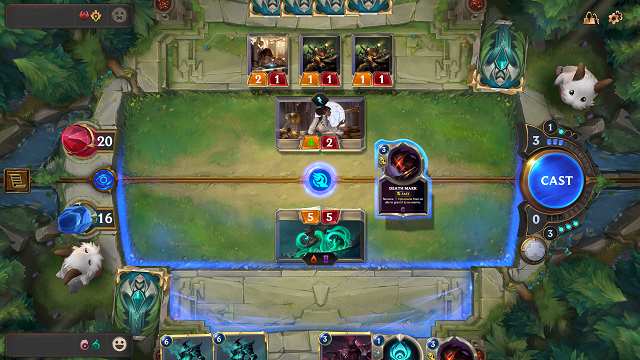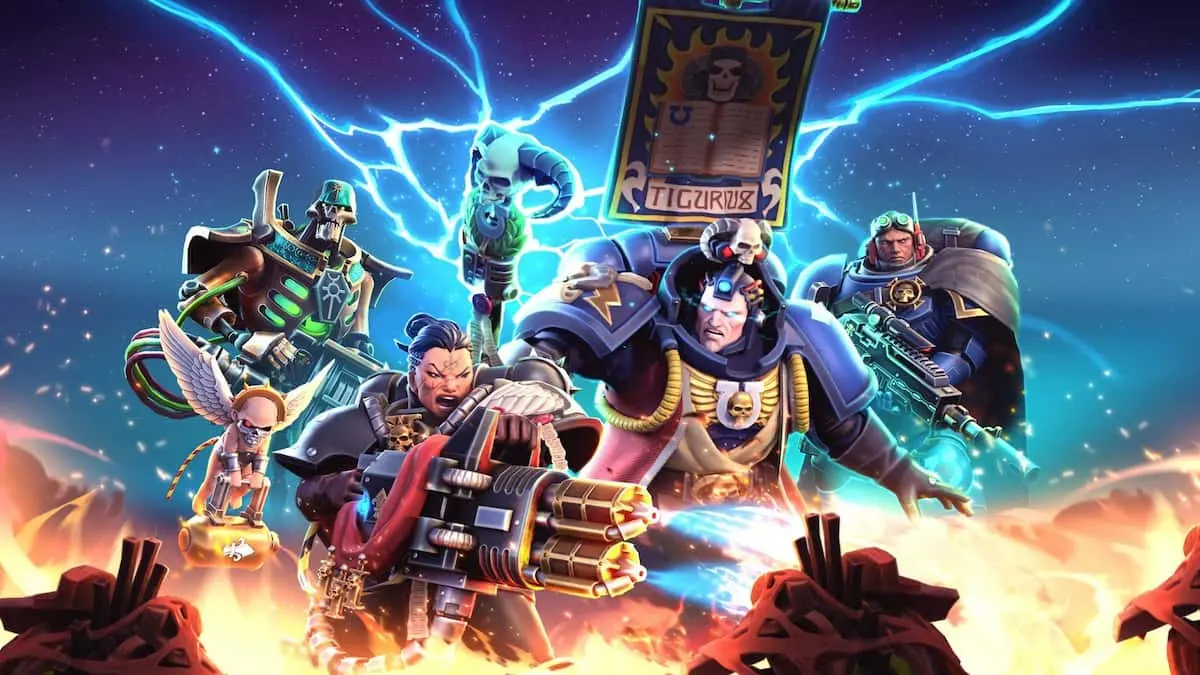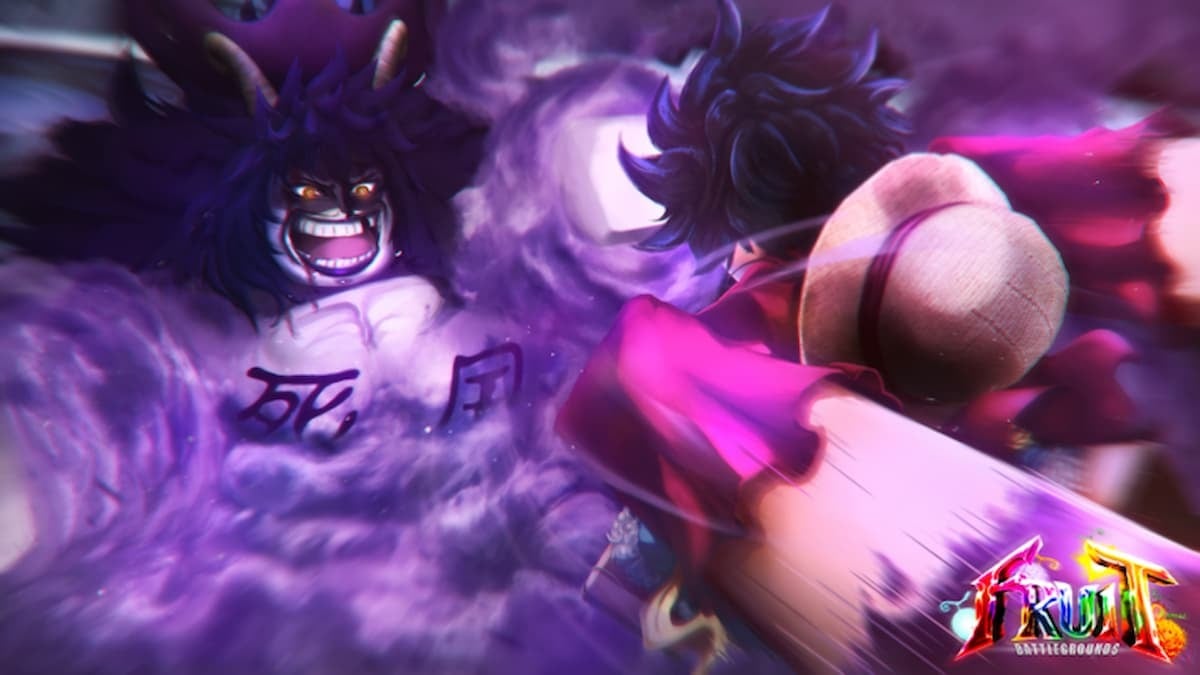Welcome to our series of Legends of Runeterra guides that explores the ins and outs of Riot Games’ F2P CCG. I’m a Master-tier player on the EUW ladder with a long history of playing card games. With that said, let’s jump into our first topic: the Initiative system.
While this guide is intended for intermediate players and beginners, you should have ideally played through the in-game tutorials to understand the basic game flow. However, I will try to explain most of this topic in enough detail for beginners.
Legends of Runeterra (LoR) has something commonly referred to as Initiative, which functions very differently to other popular CCGs. It’s actually pretty similar to Yu-Gi-Oh!, my first love and the reason why I find LoR’s ruleset so appealing. Artifact also has a similar system, but that’s currently in the graveyard…
Initiative can be a little confusing because, like many CCG terms, it’s unofficial and therefore open to some degree of ambiguity. For the sake of clarity, what I’ll be referring to as Initiative is the way in which control passes back and forth between players in a turn.
This can also be referred to as Order of Play.
Understanding Legends of Runeterra: Initiative Guide — What Is It and How Does it Work?

The basic functionality in LoR is that your opponent (effectively) has the opportunity to respond to anything you do, except a Burst spell.
What this means is that playing any card but a Burst spell will pass control over to your opponent.
Playing a Fast or Slow spell gives your opponent the chance to respond with their own spells. Playing a Follower or Champion lets your opponent play anything in their hand that they have sufficient mana for.
When you attack, your opponent chooses what to block, and then control is passed back to you, allowing you to add any spells you want to the battle. The attack only connects once both players have passed without adding anything else to the combat — more on this, later.
Now, there are some actions you can take that don’t allow an immediate response. These are summon effects from cards that don’t create a Skill, such as The Rekindler.
By comparison, Rhasa the Sunderer has the Play keyword, which creates a Skill that can be interrupted or responded to.
Of course, playing either is still summoning a Follower, which passes control to your opponent and allows them to summon their own cards or play their spells, so they are still getting a window to respond before you take any further actions.
With that out of the way, let’s focus on some special interactions and how to make use of them.
Burst Spells and Passing

As we touched on earlier, Burst spells don’t pass control back to your opponent, so you can effectively make changes to your board state before they have a chance to respond.
One cute way to capitalize on this is by summoning Jury-Rig after your opponent declares an attack. This lets you unexpectedly block something your opponent likely thought was going to deal free damage to your Nexus.
Another useful Burst interaction is playing combat buffs like Elixir of Wrath on Zed before attacking, which will also buff the Living Shadow that he summons. This gives you two attackers with 5 Power, whereas you’d only buff Zed if you wait until the Living Shadow has been summoned before playing the Elixir.
There’s also a high-level tactic called Burst Passing, which can be used to gain some cheeky advantage.
Essentially, playing a Burst spell and then passing puts the onus on your opponent to make the first move. In a regular turn, passing without taking an action would be risky as your opponent could pass back to end the turn.
Burst Passing doesn’t obey these rules, however. Instead, if your opponent doesn’t play anything, their pass will give control back to you again without ending the turn.
This may not sound important, but it can be a cunning way to scout for what cards your opponent may have, or bait them into using up their mana, leaving you with a free opportunity to play your cards unencumbered.
Combat Tricks

Holding onto your spells is often a good idea when you’re on the offensive. For instance, committing to using Spirit’s Refuge before your opponent chooses their blockers is extremely risky, as it gives them information for free and gives them more opportunity to respond.
Waiting until they’ve selected blockers before playing your Barrier spell can bait them into sub-optimal blocks, or force them to use their mana preemptively before they even know you have it.
On the flip side, you can use this to your advantage when you’re on defense. If your opponent takes an odd attack — such as swinging their Karma into your board full of 5+ Power blockers — you know they’re probably looking to play a combat spell.
In this situation, deciding not to block may be optimal.
You’ll be trading 4+ Nexus health to deny them the chance to heal using Refuge during this turn, which could be vital to killing them before they’re able to snowball the late game with Karma.
Another common position can be your opponent attacking with a Darkwater Scourge. Players are often waiting for you to block to make a Death Mark play in this situation.
If you avoid blocking, their Scourge will die immediately after attacking, denying them the chance to play their combat trick. Of course, this is only a good idea if your opponent has 3+ mana remaining and is actually running Ionia in their deck.
Closing Tips on Initiative and More

Though there’s more to Legends of Runeterra‘s Initiative system, this should be a good starting place to get you thinking about what your opponent can and cannot respond to.
This should guide your decisions moving forward, and always be on your mind when you consider which cards to play.
One related subject — Open Attack — will be receiving its own dedicated guide as its another very important topic that deserves a deeper dive. This will be released soon, so be sure to check back regularly for more helpful LoR tips!
—
For more guides on Legends of Runeterra, check out our dedicated page right here — we have lots more content on the way!







Published: Apr 15, 2020 05:11 pm